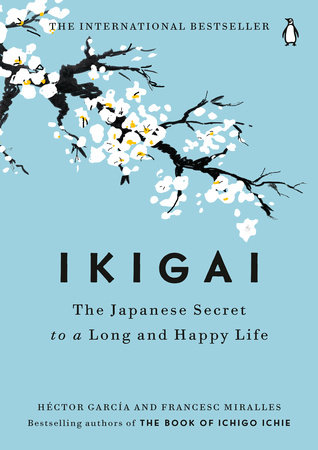Subject & College
Total Pages
208
ISBN 13
978-1786330895
Format
hardcover
Language
English
Readers Feedback
Ikigai: The Japanese Secret to a Long and Happy Life
Ms. Sejal Malpani (Assistant Professor), Ashoka Center for Business & Computer Studies, Nashik. Introduction: We all desire happiness, satisfaction, and a purpose in life. Ikigai: The Japanese Secret to a Long and Happy Life by Héctor García and Read More
Ms. Sejal Malpani
March 26, 2025
“IKIGAI: Unlocking the Secret to a Long and Fulfilling Life!”
IKIGAI is an inspiring and thought-provoking book written by Hector Garcia and Francesc Miralles. Drawing from Japanese philosophy and traditions, the book provides a practical and insightful guide to discovering one’s purpose in life, or "IKIGAI" – a Read More
Prof. Sheetal Suresh Sukate
February 25, 2025
“Ikigai” explore the Japanese concepts of finding purpose and meaning in life. the book blends cultural wisdom, scientific insights, and practical advice to guide readers towards living a more meaningful, joyful life.
Trupti Dilip Tangadpalliwar Student BA LLB-3rd Yashwantrao Chava Law College, Pune Summary “Ikigai” explore the Japanese concepts of finding purpose and meaning in life. Garcia and Miralles explore the lives of the residents of Ogimi, a village in Read More
Trupti Dilip Tangadpalliwar
February 20, 2025
Ikigai: The Japanese Secret to a Long and Happy Life
Ikigai: The Japanese Secret to a Long and Happy Life by Héctor García and Francesc Miralles is a thought-provoking exploration of the Japanese concept of Ikigai, which translates to "reason for being." The book delves into the lifestyle and mindset of the Read More
Shaikh Muskan Gulam Husain
February 8, 2025
Ikigai: The Japanese Secret to a Long and Happy Life
Review of Ikigai: The Japanese Secret to a Long and Happy Life Written by Héctor García and Francesc Miralles, Ikigai: The Japanese Secret to a Long and Happy Life offers a fresh and compelling perspective on living a fulfilling, meaningful, and healthy Read More
Hiremath Srushti Shankarayya
February 8, 2025
Ikigai
Kajal Rajendra Pawar (BE E& TC) Rajgadf Dnyanpeeth Shri Chhatrapati Shivajiraje College OF Engineering, Dhangwadi Ikigai is a Japanese concept which translate roughly as the happieness of always being busy". In this book, we explore the regions Read More
Kajal Rajendra Pawar
January 30, 2025
Find your IKIGAI: A Path to Happiness and Success
Tareeka Rane, Student TYBCA, Camp Education society's Dr. Arvind B. Telang Senior College, Nigdi Pune "Ikigai: The Japanese Secret to a Long and Happy Life" by Héctor García and Francesc Miralles is a captivating and thought-provoking book that Read More
Tareeka Rane
January 22, 2025
Ikigai: The Japanese Secret to a Long and Happy Life
The Japanese term “Ikigai” or the “art of living” refers to the practice of living a purposeful life with respect to the person’s sense of self. Why to Read the this Book? It will help you to find your purpose, encourage Read More
Anajli Sanjay Mali , Computer Engineering , Late G N Sapkal College of Engineering
January 21, 2025
Ikigai: The Japanese Secret to a Long and Happy Life
Soni Kamaksha,IV B.Arch.D,STES'S Sinhgad College of Architecture,Pune-41 Ikigai: The Japanese Secret to a Long and Happy Life by Héctor García and Francesc Miralles is a beautifully crafted book that delves into the Japanese philosophy of finding one’s Read More
Soni Kamaksha
January 16, 2025
Ikigai: The Japanese Secret to a Long and Happy Life
Student Name: Atharav Patil College : Sinhgad College of Engineering Review of "Ikigai: The Japanese Secret to a Long and Happy Life" by Francesc Miralles and Hector Garcia "Ikigai: The Japanese Secret to a Long and Happy Life," written by Francesc Read More
Atharva Patil
January 16, 2025

